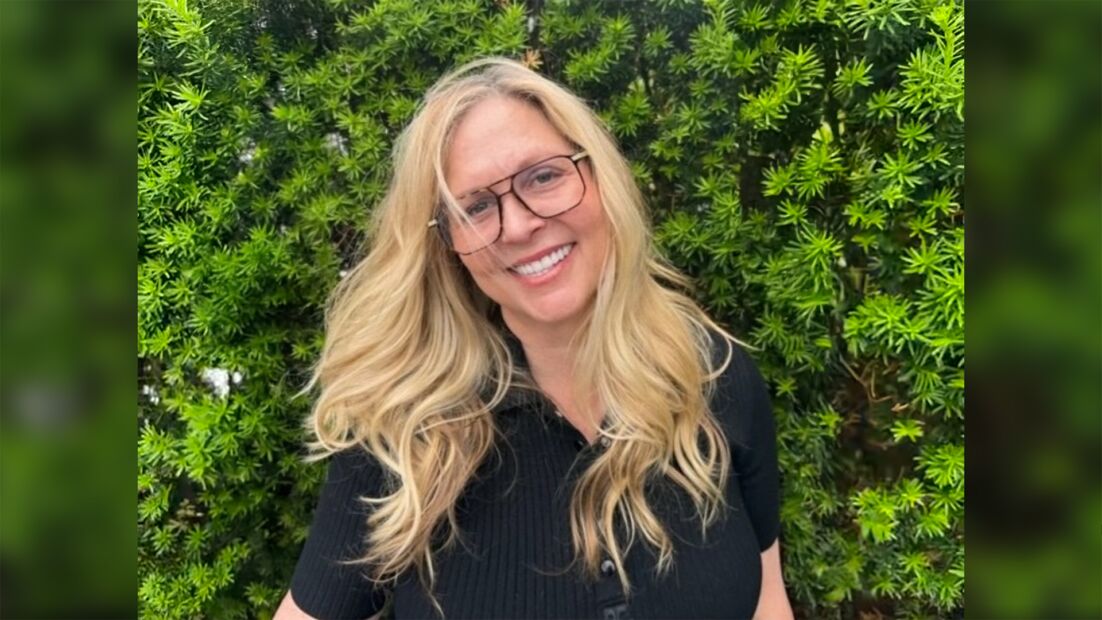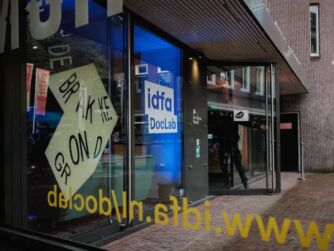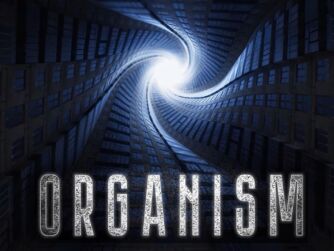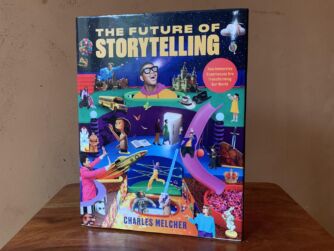Here’s my interview with Vasilisa Glauser, educator specializing in twice exceptionality, that was conducted on Wednesday, June 11, 2025 at Augmented World Expo in Long Beach, CA. See more context in the rough transcript below.
This is a listener-supported podcast through the Voices of VR Patreon.
Music: Fatality
Podcast: Play in new window | Download
Rough Transcript
[00:00:05.458] Kent Bye: The Voices of VR Podcast. Hello, my name is Kent Bye, and welcome to the Voices of VR Podcast. It's a podcast that looks at the structures and forms of immersive storytelling and the future of spatial computing. You can support the podcast at patreon.com slash voicesofvr. So continuing our series of looking at AWE past and present, today's interview is with Vasilisa Glauser, who is an educator who's working with twice-exceptional students within the context of VR. So the twice exceptional students are folks that may have some enhanced capabilities, but also may have different detrimented capabilities. And so they're outliers on both ends of the spectrum, let's say. And so XR technologies ends up being really great to be able to facilitate different types of capabilities. experiences and education and accommodation for symptoms that are coming up within these students and so as an educator who's working with this population then vasalisa got really quite interested into the potentials of vr and has been doing her own explorations for how to use xr within the context of her work with these twice exceptional students so we're covering all that and more on today's episode of the voices vr podcast so this interview with vasalisa happened on wednesday june 11th 2025 at augmented world expo in long beach california So with that, let's go ahead and dive right in.
[00:01:22.128] Vasilisa Glauser: Hi, my name is Vasilisa Glauser, and I'm an educator that specializes in twice exceptionality, and I'm studying how this technology can really help that community.
[00:01:33.058] Kent Bye: And maybe explain what that is, twice exceptionality.
[00:01:37.355] Vasilisa Glauser: So twice exceptionality is when we have like a spectrum of human beings and some of us sit on one end and some of us sit on another end and like a gifted side as well as a learning challenge side and people who have that experience are twice exceptional. In the school system, a lot of times people are only identified on the negative side. Their positive side isn't shown. And from what I've learned, the technology can sometimes help personalize experiences for people so they can see their true GPS system and their true self.
[00:02:10.643] Kent Bye: Great. Maybe you could give a bit more context as to your background and your journey into this space.
[00:02:14.986] Vasilisa Glauser: So I have a master's in education and I started doing immersive music parties in New Orleans a long time ago as well as creating immersive art experiences in New Orleans back in the 90s. And then I worked in the school systems and I've worked for years on DEI experiences whether it was looking at doing crayons in certain colors and just really meeting children where they were and I worked a lot with children that were in the foster care system and I tend to be more on the fringe of school experiences in special ed and through just literally being on the ground and in the trenches when you're a teacher you don't really generally have all the resources that you need. So you start to search and see what could be available. And I started listening to podcasts like yours, actually, as well as a couple others. And like Sophia Moshasha, I don't say her name right. I apologize. I heard her speak on a podcast. and that's when I realized that XR really was something that I needed to look deeply into when it comes to rehabbing the education system. Because I've been searching for a technology to help out this community, I realized that the XR space is the best because many of us are visual-spatial thinkers, and our thinking inside of ourselves matches up with the technology in such a beautiful way that it's easy for our nervous system and our brain hemispheres to tune in together and really have someone experience the lesson or just the social experience in a very different way. Like the fact that we all know lyrics from music from when we were a child, that's because of the technology of music and how we were interfacing with it was getting our nervous system and our brain activated at the same time. So for the past few years, I've been coming to things like AWE and joining the ARVR Association and just really immersing myself in the technology because I'm not a technology person, I'm an educator and a consultant. And this community has been so welcoming and so collaborative and educating me and letting me educate them back that I'm really, really grateful to the XR community. And the stuff that they're doing is really, really impressive.
[00:04:35.492] Kent Bye: And so as you're doing this research, are you working in the context of any academic institutions or is this research that you're directing on your own? And just talk a bit about your interfacing with these different populations and how XR technologies may be coming into the fold.
[00:04:49.110] Vasilisa Glauser: Well, one of the projects I'm working on right now is that there's a group that are Mount Sinai eSport team, and their name are the Quad Gods. And there's actually an HBO Max movie about them right now. And they are looking to do some XR experiences. We're looking to do some accessibility education using XR, using games to teach people how difficult it is to be in the world when you're in a wheelchair and don't have accessibility in certain ways. I'm also working with Jamnola, which is an art museum in New Orleans, and we're looking at using XR to bring the New Orleans culture into digital twins and using that as an education system to go into field trips into the New Orleans school system. And I'm also writing a book right now on how we can move from standardization to personalization and how we can really use this technology to heal wounds that the school system has done, if you've gone through it, and also help people that want to learn and know how they work in the world. I feel like especially if you're on the spectrum on either side, if you know your own GPS system is what I always call it, it makes it so much easier to move throughout the world. And a lot of times people are only highlighted on the negative side. So I like to show people on the positive side what it is as well. So I do a lot of consulting with families and looking at appropriate schools and getting them therapists and talking about different ways of self-care.
[00:06:20.989] Kent Bye: And so what evidence have you seen either from your work or other research that XR is a good medium for the specific population of twice exceptional folks?
[00:06:30.259] Vasilisa Glauser: When you're a twice exceptional person, you tend to experience things all at once. So some people can walk in the room and they'll notice one thing or another, but this population, we notice everything at once. And the fact that XR gives someone a full experience and also gives them agency in the experience is lowering anxiety as well as giving people a chance to see themselves in different ways.
[00:06:59.295] Kent Bye: Yeah, and so what's next for the work that you're doing?
[00:07:02.056] Vasilisa Glauser: Well, I want to finish my book, and I'm going to be going up with Tom Furness, who is the godfather of VR this summer. I'm going to spend some time with him and learn from him and try and figure out exactly the best way that I can help the most people in this population. I really, truly believe that technology needs to be used for people who actually really truly need it as well as for others so i'm really pushing in this community that we make sure that we do accessibility design at all times and bringing people in that are part of that community so i just sponsored a jam in Orlando that was a real estate experience that I challenged them to put in ADA accessibility into it. So I think that's going to be one of the things I'll be doing also coming up is popping into the different hacks and jams and just really trying to get that message out. And it's been working. People have come back to me saying that after having these experiences, they realize that accessibility, whether it's emotional, mental, or physical, is so important when we're designing this new world that we know is coming for Spatial.
[00:08:13.460] Kent Bye: Yeah, before we started recording, you had mentioned that there's an implicit promise by going to school and then the potential for employment afterwards and that some of those promises seem to be broken right now in terms of just where things are at in the culture. Just curious if you could elaborate on that point and what you meant by that.
[00:08:30.695] Vasilisa Glauser: So I believe that the government gives its citizens a promise that if they go to school and spend their days, that they will have a better vocation when they get out. And since that promise has been broken, I feel that technology has kind of filled the bill. You know, people talk about TikTok University and all these different things. And I think that the school system is so out of date that it's not preparing our students for the jobs now, let alone for the ones in the future. And I feel that XR is such an amazing way of training for vocation as well as education for deep thought. I really think that giving people a personalized education to where they can make their own choices and not just kind of fall into different tracks at school would be so important because our schools are segregated into English, math, and vice versa, whereas when you have an XR experience, it's all one. And I think that's a much healthier way for people to find out what their true path is going to be instead of telling them, oh, you're not good at math, so then they're not going to go into a vocation that has any math in it due to what the adults have told them growing up, as well as in the college area. We know that XR is fantastic and so successful for training for so many different vocations.
[00:09:50.171] Kent Bye: Great. And finally, what do you see as the ultimate potential of XR in spatial computing and what it might be able to enable?
[00:09:57.754] Vasilisa Glauser: I think that it's going to affect the medical world first in such a dramatic way. The things that I've been seeing that people are creating is really amazing. And when it comes to the education system, I think that once we show how easy it is to onboard, I'm dyslexic and I'm dysgraphic with a high IQ, and I'm able to get into this technology. And I think that once the bridge happens between the two, I think that it's going to release a lot of pressure on the teachers. We're really asking a lot of them these days. It's not possible for them to do. I think that we're going to see a whole new level of vocation coming out that is going to really help our community. People are so scared of AI taking all the jobs, but they don't realize that with XR and AI coming together, we can train for other jobs that we've never even thought of that really may bring us joy and good health in our lives, which thus will make the community a better community.
[00:10:55.515] Kent Bye: Awesome. Is there anything else that's left unsaid that you'd like to say to the broader immersive community?
[00:11:00.077] Vasilisa Glauser: Yes. Please follow your dreams. We need you.
[00:11:03.198] Kent Bye: Awesome. Well, Vasilisa, thanks for joining me here on the podcast to share a little bit what you're looking at here at this intersection of these twice exceptional folks and students. And yeah, just really interesting to hear all the ways that XR could be used in an educational context. So thanks again for joining me here on the podcast.
[00:11:20.339] Vasilisa Glauser: Thank you. I appreciate all the work you do for our community. It's really, there's no words to say, the time that you spend letting us know what's going on is so, so valuable. A lot of us really, truly appreciate you and your intelligence and your kindness and your honest look at what is happening.
[00:11:42.158] Kent Bye: Thank you for that. Thanks again for listening to this episode of the Voices of VR podcast. And if you enjoy the podcast, then please do spread the word, tell your friends, and consider becoming a member of the Patreon. This is a supported podcast, and so I do rely upon donations from people like yourself in order to continue to bring this coverage. So you can become a member and donate today at patreon.com slash voicesofvr. Thanks for listening.




